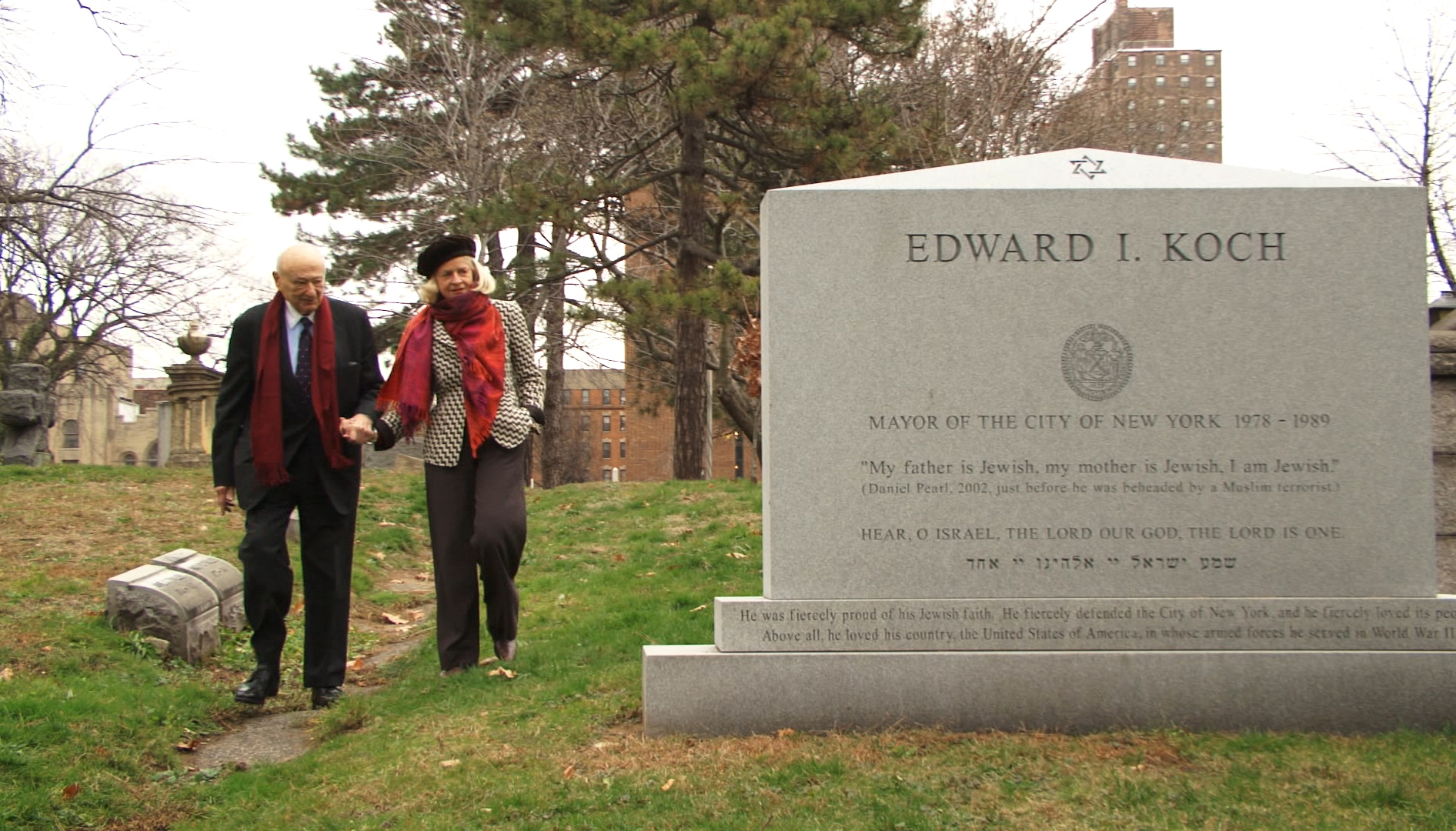By Chlotrudis Independent Film Society
Rating: 3 cats
Director: Neil Barsky

Country: united_states
Year: 2013
Running time: 100
IMDB: http://www.imdb.com/title/tt2237822/combined
Jason says: “The lettering used for the main titles of KOCH is the same as that used at a New York City subway station. That’s fitting; the subway is how New Yorkers (or those who visit) most frequently interact with the great machine that keeps the city running, and it the mayor is that machine’s operator, it’s hard to imagine anyone with a closer association with the role – in both directions – than Ed Koch.
“Aside from a couple of quick present-day clips, the film starts with him running for mayor in 1977 and has little to say about his life before then. Similarly, his activities since losing the 1989 election are almost all viewed through the lens of him being mayor emeritus, a man whose influence and importance is tied to those twelve years. It’s almost as if he arrived at that first election fully formed and hung on as the ghost of his true self afterward, to hear director Neil Barsky tell it.
“And while those are certainly some of the most productive and eventful years of Koch’s life, they are just twelve out of eighty-plus. And for all the time Barsky spends on those years, the film can occasionally come across as a list of events – not even necessarily accomplishments. There are a few moments during the section focused on the ’77 campaign that paint him as shrewd, but relatively little that shows what sort of master politician he must have been in order to be both effective at making tough decisions and popular enough to get re-elected. Just what role Koch had in the scandals that eventually drove him from office is never seriously examined.
“But, then, maybe not saying anything particularly revelatory is the best way to paint a picture of Ed Koch. The man is a mess of contradictions, many self-perpetuated. Here’s a guy who enacted some of the first civil rights laws relating to sexual orientation who apparently collected enough ire from the gay community for not doing enough about the AIDS epidemic in New York City and allegedly staying in the closet to counter any good will that gained him. He seemed to have a way of making that kind of enemy with his blunt pragmatism, although I suspect that it took more than the broken campaign promise that the film focuses on for a one-time civil rights lawyer to still be so reviled by some in the African-American community, as Barsky makes a point of showing early on.
“Then again, Koch describes going to Mississippi in the 1960s as something he figured would look impressive on his résumé later. Koch, it is no surprise, co-operated fully with the documentary, and while none of the interview segments really seem to push him to answer difficult questions, he’s not above being a little incendiary on his own. The guy was a frequently funny combination of self-centered and outgoing, not terribly worried about personal dignity, which makes for several amusingly crude stories from the horse’s mouth. Still, it’s possible that the most meaningful bits with Koch don’t have him talking, but either returning to his apartment or going through his daily routine alone. It seems like a hell of a price for something, whether it is hiding his homosexuality or being dedicated to something that will eventually end to the exclusion of all else.
“Barsky doesn’t say which one – he barely asks the question. Still, the idea and image of a man ultimately alone and still craving relevance are striking enough to make KOCH at least a bit memorable, even if it doesn’t impart much information that anyone interested in him to begin with wouldn’t already know. 3 cats
“Seen 13 April 2013 in Landmark Kendall Square #4 (first-run, 2K DCP)”
